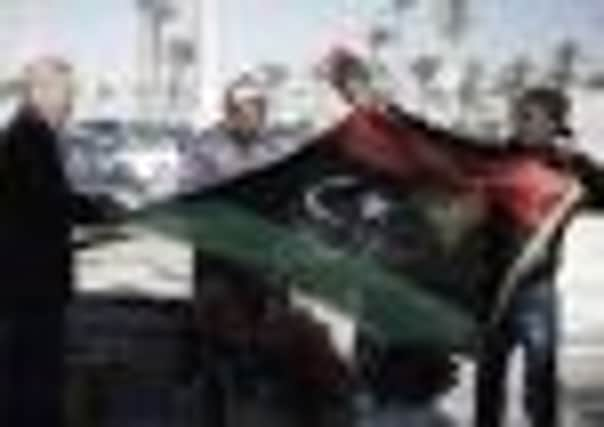Amnesty accuses militias of torturing Gaddafi loyalists


The warning came on the first anniversary of the revolution that overthrew Gaddafi’s regime in Benghazi.
Amnesty International quoted detainees as saying that they “had been suspended in contorted positions; beaten for hours with whips, cables, plastic hoses, metal chains and bars, and wooden sticks and given electric shocks with live wires and taser-like electroshock weapons.”
Advertisement
Hide AdAdvertisement
Hide AdAt least 12 detainees had died since September after torture, the human rights organisation said. “Their bodies were covered in bruises, wounds and cuts and some had had nails pulled off,” the group added.
The report is a fresh blow to Libya’s new government, the National Transitional Council (NTC), which helped lead the anti-Gaddafi uprising.
Since the war’s end last October, the NTC has struggled to extend its control over the vast desert nation. It has largely failed to rein in the hundreds of brigades that fought in the war, many of which now run their own detention centres for those accused of links to the Gaddafi regime.
Amnesty said it visited 11 detention camps in central and western Libya in January and February, and found evidence of torture and abuse at all but one.
The United Nations’ top human rights official, and Amnesty International, have urged Libya’s government to take control of all makeshift prisons to prevent further atrocities against detainees.
Some 2,400 detainees remain held in centres controlled by the NTC, but the militias are holding thousands more prisoners, Amnesty said. Most are in and around Tripoli and Misrata.
The International Committee of the Red Cross reported that from March to December 2011 it had visited over 8,500 detainees in some 60 detention centres.
The humanitarian group Doctors Without Borders suspended its work in prisons in Misrata in late January because it said torture was so rampant that some detainees were brought for care only to make them fit for further interrogation and abuse.
Advertisement
Hide AdAdvertisement
Hide AdRovera accused the Tripoli-based national government of “a lack of political will. They’re not willing to recognise the scale of the problem. It is way, way beyond individual cases. It’s an irresponsible attitude,” she said.
The militias were one of the keys to the rebellion that toppled Gaddafi’s 42-year rule last year, but they are maintaining their independence from the National Transitional Council.
Hundreds of Libyan militias commemorated the anniversary of the anti-Gaddafi uprising this week by allying into a new unified military council.
Thousands of fighters from across western Libya held a mass parade in Tripoli on Tuesday, showing off heavy machine guns and rocket launchers and firing rifles in the air, an outburst that appeared intended as a warning to anyone who might stage attacks during the anniversary.
Some of the militia’s reprisals are against dark-skinned Libyans and African contract workers who the Gaddafis had brought in for jobs ranging from construction to security and riot control.
“African migrants and refugees are also being targeted and revenge attacks are being carried out,” Amnesty said. “Entire communities have been forcibly displaced and authorities have done nothing to investigate the abuses and hold those responsible to account.”
Amnesty said that militias from Misrata “drove out the entire population of Tawargha, some 30,000 people, and looted and burned down their homes in revenge for crimes some Tawargha are accused of having committed during the conflict.”